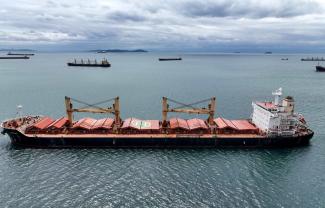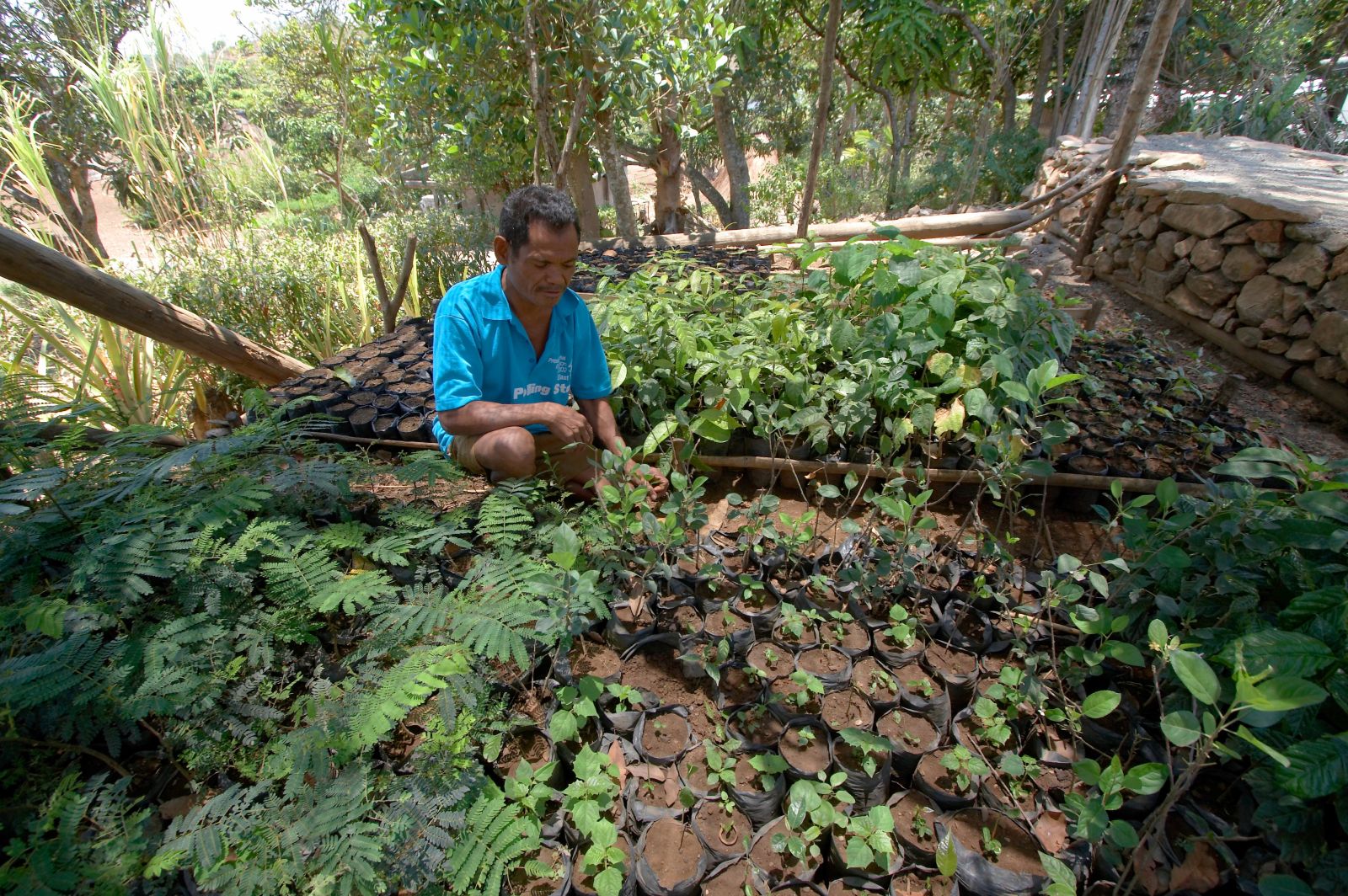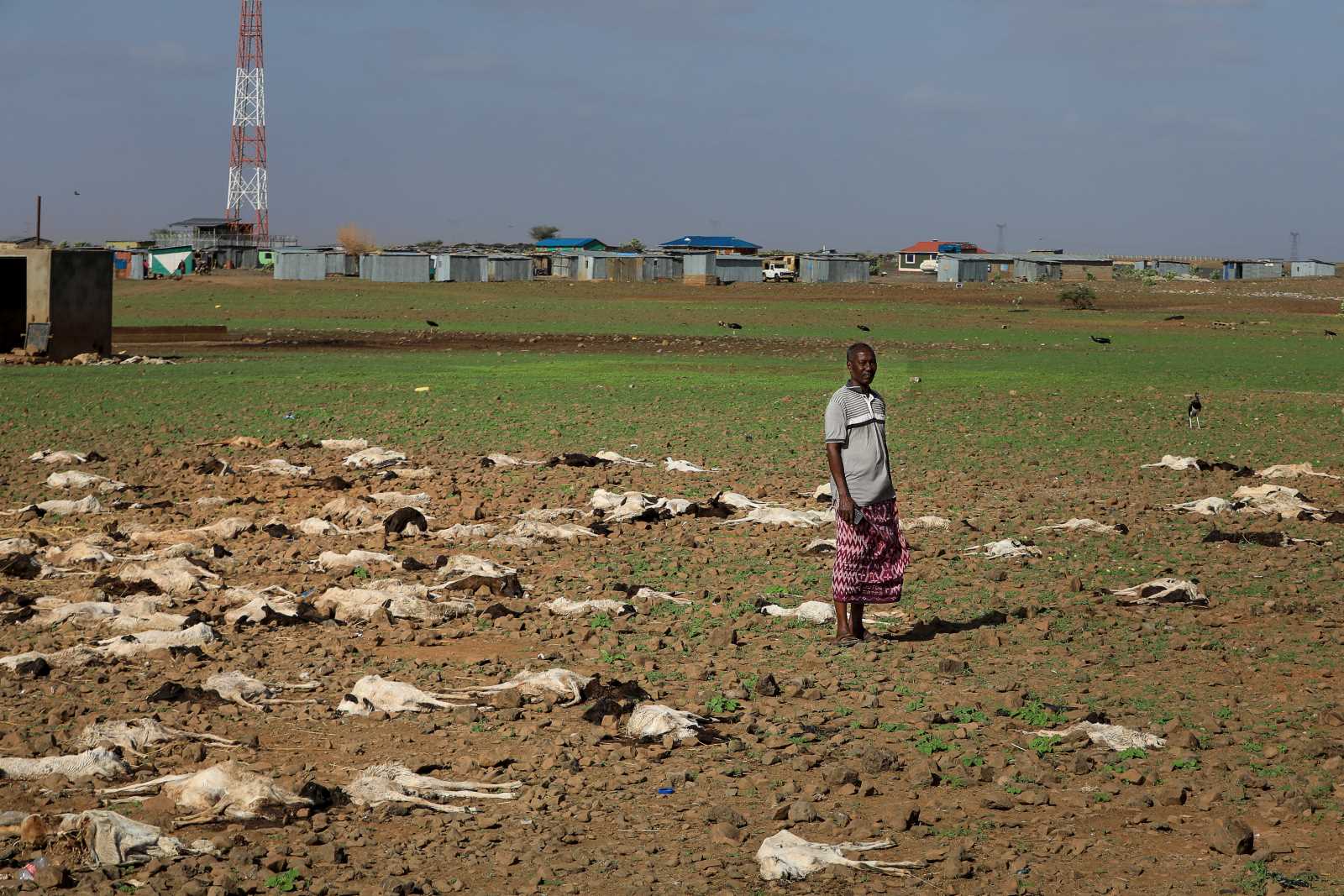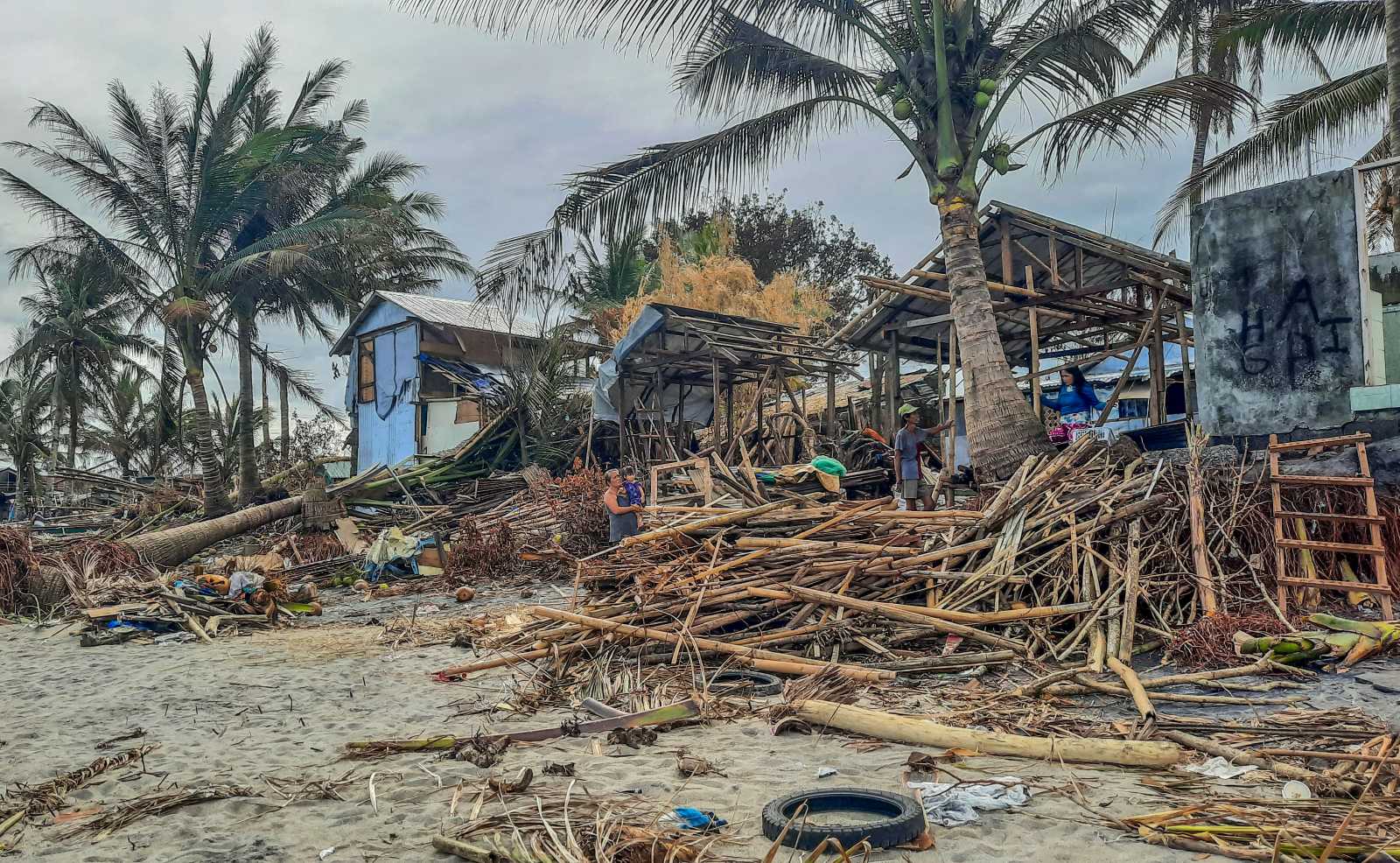Global governance
How to safeguard food security in climate crisis

The global community, and countries in their contexts, must modify food systems in ways that overcome current food insecurity and ensure food security long term. All issues must be addressed head on.
“Food security” is defined as access to sufficient quantities of food in appropriate quality. It obviously depends on an adequate and affordable supply of all ingredients required for a nutritious diet. Today, about 735 million people around the world do not get sufficient food and are undernourished as a result. About 3 billion, moreover, do not consume healthy diets.
Unless comprehensive action is taken, the climate crisis will make matters worse. A holistic agri-food system perspective must consider the entire range of actors involved in the production, aggregation, processing, distribution, consumption and disposal of food products. It must also take account of agriculture (including livestock), forestry, fisheries and food industries, as well as the broader economy, social disparities and the natural environment.
A sustainable food system must achieve good nutrition for all in a way that preserves the foundations of future generations’ food security. This challenge has economic, social, cultural and environmental dimensions. It is crucial to preventing further loss of biodiversity and to stabilising the climate.
Mitigation, adaptation, transformation
Many national food systems, as well as the global food system, are losing resilience. “Resilience” is the capability to cope with shocks without significant loss of livelihood, health and nutrition. Food-system resilience can be understood as a function of hazard, vulnerability and exposure to climate risks. It is therefore essential to limit the climate-related hazards that affect food supply, reduce food systems’ vulnerability and lower people’s exposure to risks. Three policy approaches serve this triple purpose:
- Mitigation of climate change. Radically reducing emissions of CO2 and other greenhouse gases is indispensable for sustainable food security. Global heating is leading to extreme weather events, which affect production as well as farm workers’ health. Moreover, recent science suggests that extreme heat curtails photosynthesis, with serious impacts on crops and forests. And this is not just a terrestrial agenda, because climate change affects oceans, which also have a bearing on food systems. Nature-based solutions such as agroforestry, coupled with sustainable land and soil management, serve mitigation. However, mitigation in itself is no longer enough to safeguard food security.
- Adaptation to climate change. People can protect themselves by increasing their chances to cope. Important issues include affordable access to clean energy, water and healthcare. All of them have a bearing on good nutrition. Long-term adaptation, however, will be impossible unless mitigation puts an end to further heating.
- Transformation. Socio-ecological systems, including the lifestyles of wealthy nations, must change to become sustainable. In particular, people in high-income countries must reduce their consumption and assume responsibility for their impact on the environment.
The climate crisis negatively affects food security in several ways. For example, access to safe drinking water is becoming more precarious. Climate events like floods often disrupt it. Diarrhoeal diseases, however, affect humans’ intake of micronutrients. These illnesses have a strong correlation with rising temperatures. At the same time, heat waves make it more difficult to handle food safely.
The climate crisis also affects market dynamics and causes price volatility. Price hikes are happening more frequently. Several issues can exacerbate the impacts of weather-related shortfalls in food production. They include poor market transparency, financial speculation in commodity markets as well as export restrictions. The current grain-market disruptions resulting from Russia’s attack on Ukraine show how important unrestricted exports are.
Crucial policy areas
Policymakers’ action must not only boost food systems’ resilience against known risks around the world, but also increase resilience to so-far unknown ones. Cross-cutting action is necessary. In particular, progress is needed in seven policy areas:
- Sustainable land management (SLM): Relevant aspects include sustainable water management, ecosystem health, agricultural productivity, climate adaptation and mitigation as well as the protection of biodiversity. SLM incentives (such as payments for ecosystem services) are necessary. Crop cultivation and livestock production must be practiced in economically viable and environmentally sustainable ways.
- Social protection. Poverty often undermines families’ food security. Nutrition interventions like school meal programmes are helpful. So are cash-transfer schemes or job creation. Countries with low and middle incomes deserve support for improving social protection. Access to healthcare and education are essential. Where related polices are not in place, they should be adopted. Food security hinges on the reduction of inequality.
- Diversification. Diversifying agriculture and supply chains strengthens food-system resilience. However, diversification has costs as it reduces opportunities for economies of scale and specialisation. Transaction costs tend to rise accordingly. Another challenge is that resilience is not just about withstanding current shocks, but also about maintaining the capacity for future development. If diversification hampers the latter, it is not fully conducive to resilience building.
- International trade. Ensuring free and open global food trade will require a reinvigoration of the World Trade Organization (WTO). Panic-induced border closures lead to international price spikes. Transparent information on production, stocks and government interventions around the world is critical and must be made publicly available (e.g., through the Agricultural Market Information System – AMIS). Trade facilitation in terms of investments in infrastructure – including particularly the digitisation of customs systems – matters too.
- Insurance is a promising tool to strengthen food-system resilience. It spreads both the risks and the costs of negative shocks among a large pool of people, enhancing resilience at the level of individuals. However, it does not prevent or reduce climate risks. Insurance may thus prove counterproductive if it motivates people to continue unsustainable activities. Though this kind of financial service is quite effective in terms of managing individual shocks, it is less useful when many people experience shock impacts at once, as is typically the case in extreme weather events.
- Migration. In response to the climate crisis, people are leaving their homes. In some cases, migration is basically a form of livelihood diversification. Remittances from migrant workers contribute to their families’ resilience after all. However, entire areas are likely to become uninhabitable, for example, as the rising sea level inundates islands. Migration processes and policies need to be coordinated, and both sending and receiving countries must act in ways that make migration strengthen the resilience of individuals and systems. Climate refugees from countries that are becoming uninhabitable must get an internationally recognised climate refugee passport.
- Science-based innovation. Science is facilitating key innovations in food systems, including efforts to reduce risks and to enhance productivity. Bioscience and digital technology are important. Scientific research also helps to find new ways to maintain and, if necessary, renew productive soils, water resources and even entire landscapes. Science is also needed to protect biodiversity, including agricultural genetic diversity. Research can help to reduce inequality too. More funding is needed for research on food systems.
We live in the Anthropocene, the age in which humanity is shaping the Earth’s geosphere, biosphere and atmosphere. Action to enhance food security must be embedded in a broad strategic agenda of transformation. The global community must shift to a sustainable bioeconomy. It also needs a coherent governance structure to safeguard both food security and the global environment. The SDGs provide the concept, but not the policy framework for such joint action.
Long-term food security is intricately linked to the UN Framework Convention on Climate Change, the UN Convention on Biodiversity, the UN Convention to Combat Desertification and the Sustainable Development Goals. So far, appropriate funding has not been made available for any of the above-mentioned global agreements. That must change for the sake of humanity’s common future.
Joachim von Braun is a professor for economic and technical change at Bonn University’s Center for Development Research (ZEF – Zentrum für Entwicklungsforschung).
jvonbraun@uni-bonn.de













